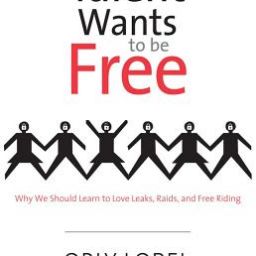by Raizel Liebler & Keidra Chaney
Last year, we wrote an article published in Pace Law Review about how social media usage interacts with employment, institutional “voice” and the rights of individuals to express themselves. In a series of posts, we are sharing edited portions of the article to more fully share our ideas. If you are interested in citing this paper in an academic (or quasi-academic) setting, please use the full published version: Here We Are Now, Entertain Us: Defining the Line Between Personal and Professional Context on Social Media, 35 Pace L. Rev. 398 (2014)
Conclusion
In this article, we have explored the question of who gets to determine when an individual’s online speech represents – or hurts – a company or brand. For professional athletes and employees with true negotiated contracts, restricting or monitoring an individual’s “free time” speech could theoretically be an acceptable response (ex. a “moral contracts” provision). After all, when both parties have true economic power to either enter into the contract – or not, with lawyers representing both sides, interference by courts or policymakers seems unnecessary.
When most employees either have contracts of adhesion or instead are at-will employees, employers should not have social media policies that unfairly restrict their employees’ social media usage when not on the job. Creating a simplified national regulatory regime where the default is privacy for social media accounts would help protect the interests of employees.
Also, this default would better allow the public to see statements from individuals as reflecting only their own views rather than automatically as statements reflecting viewpoints of an employer. Moving to the point where the public views social media from an individual in their “private” space as reflecting upon them, rather than also on their employer will take time – and adjustment.
Using the example of student athletes, many had social media accounts before their athletic vocations became of interest to the potential financial interest of educational institutions that might also be their employer. And like any other student – or employee, they may indeed interact on social media in a way that others wish they had not.
There are much more important issues and structural problems regarding student-athletes, including how students are impacted by concerns over with maintaining team image and profitability (not to mention potential crime cover-ups). Focusing on social media use prioritizes “low-hanging fruit” over systemic problems in academic policy.
The conundrum is that evaluating an individual based on what they say on social media is only reflecting a small segment of an individual’s daily life or opinions.
On the other hand, executives, human resource professionals, and others who have direct control over hiring and firing, based on their relationship to other employees, have a demonstrated obligation to not engage in discriminatory practices. Someone could be acting in a legally indefensible manner in regards to hiring, regardless of their social media presence; focusing on social media is the wrong nexus – or at the very least, the easy nexus.
For now, the approach that federal financial regulators take regarding social media, whether a statement could be seen as directed by or standing in for the viewpoint of the employer, is the closest to a well-balanced legal test as presently available.
However, social media technology and online cultural norms now make the lives and the speech of employees public in ways that were previously obscured. Additionally, social media technology and online cultural norms blur the line between who is considered an audience versus a friend, or an individual versus a brand.
With this in mind, there should be limitations to the ability for an employer to control or monitor the social media activity and speech of an employee that has no direct impact on the public perception of the company.
In the end, the question remains – how intrusive do we want employers to be in the lives of their employees? Most employers have a list of characteristics that they do not make employment decisions about, some required by law. During the time of employment, an employer may seek to restrict employee speech that may negatively impact a company’s bottom line, such as union organizing.
While many individuals participate in social media platforms intending to connect with peers or families, there is an unacknowledged public-facing role assumed as well, due to the functionality of these services.
Current law and policy about social media and employees approach social media websites primarily as a platform for marketing or professional discussion, but do not fully address the issue of social networking, that is – the activity and behavior that drives the activity of social media websites.
Future focus should more closely observe the ever-changing and reciprocal impact of online behavioral activity, technology functionality, and business use that drive how social media websites are used, and impact how people work, live, and play online, often at the same time.
image credit: bigstockphoto


